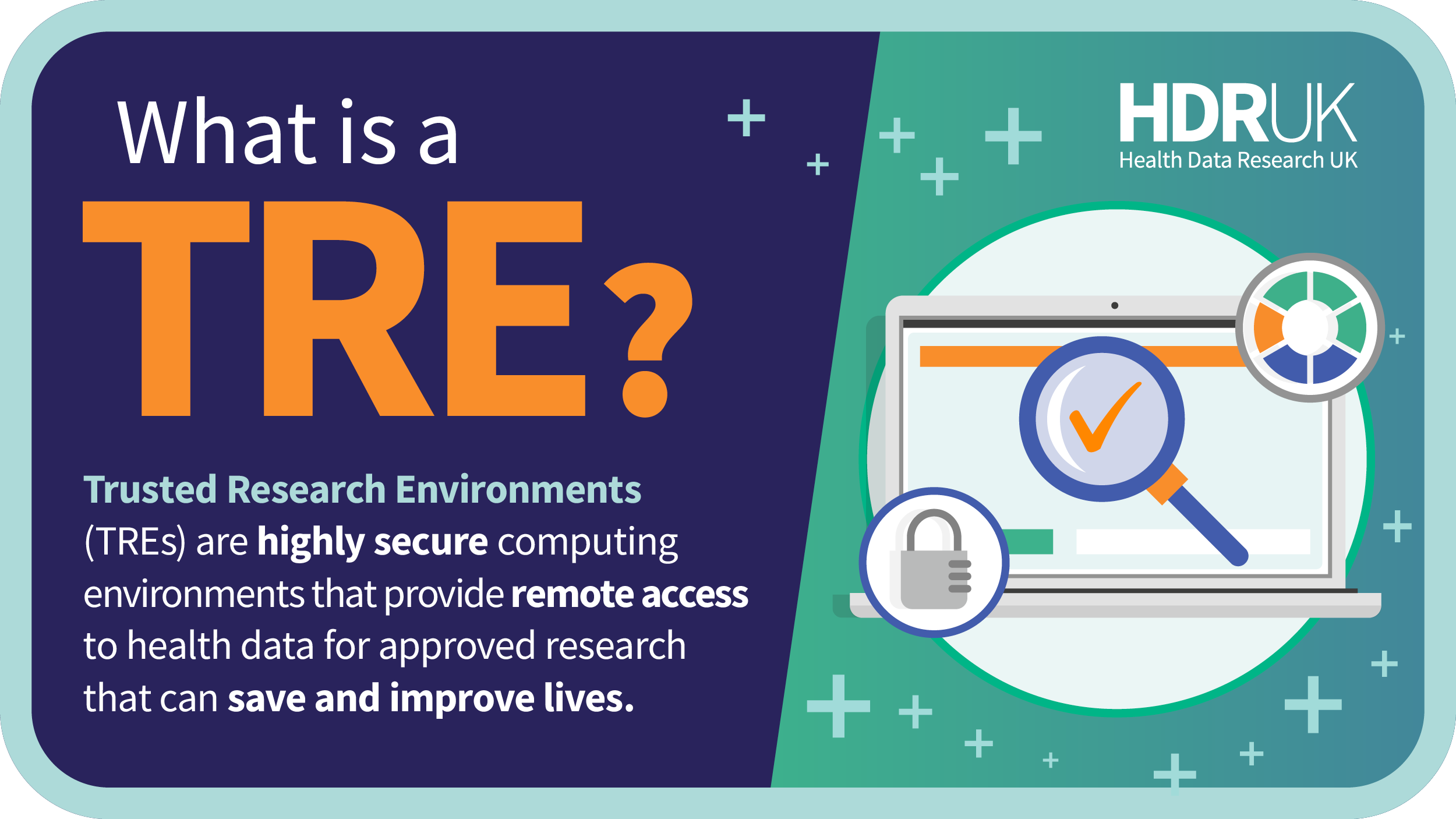The Secure Research Service: The UK’s largest Trusted Research Environment (TRE)
2 November 2022
In the first of our new blog series on the UK's national Trusted Research Environment (TRE) network, we hear from Bill South, Deputy Director of the Research Services and Data Access at the Office for National Statistics (ONS), about the Secure Research Service - how it was developed, what ONS and government data it holds, and how it's already enabling over 600 research projects.

TREs have grown fast, and their evolution is accelerating in order to bring more datasets together so researchers can carry out ever-more valuable research.
The Secure Research Service (SRS), originally developed by the Office for National Statistics (ONS), is the UK’s largest TRE and is on the way to becoming a new cross-government data sharing platform, the Integrated Data Service (IDS)
Bill South, Deputy Director of the Research Services and Data Access at the ONS, told us about the SRS, its development and future.
How did the SRS come about and why was it created?
The ONS developed the SRS in January 2004. Starting as a set of standalone computers, it has become a fully scalable secure cloud-based solution.
Initially, it provided secure, lawful access to unpublished business survey data for research purposes. From these modest beginnings the SRS has become the default means by which ONS provides research access to data. Increasingly it’s the means by which other government departments make data available, helping transform the research landscape.
Thanks to ONS and Administrative Data Research UK (ADR UK) investment, the SRS supports some 1,500 accredited researchers working on around 600 projects using 124 datasets from ONS and across government. It’s accessed from over 105 academic, central and local government and third sector organisations.
The underlying infrastructure is government-assured and has sophisticated security controls and monitoring, to help assure data owners that their data is safely managed. The SRS is also accredited by the UK Statistics Authority as a data processor under the Digital Economy Act.
How have the HDR UK National Core Studies supported the development of the SRS?
The Health Data Research Innovation Gateway has been instrumental in the development of our metadata catalogue. We worked with HDR UK to increase the visibility of datasets held in the SRS that are relevant to COVID-related research and now have 13 datasets listed on the Gateway.
Explore ONS SRS Collection on the Gateway
This was valuable in improving our metadata, most notably through including variable names and basic descriptions. This vastly improved researchers’ understanding of what information is held in a dataset before making a project application. We look forward to further improving our offer including metadata federation with TREs across the UK.
What data is available in the SRS, and how can researchers access and provide appropriate accreditation for this data?
The SRS Metadata Catalogue is a new, interactive way to discover what data are available. You can search by name or theme and collect information about each SRS dataset, including its periodicity, frequency and spatial coverage, as well as a high-level description.
For many datasets, you can see details of the variables, with descriptions. This allows researchers to assess whether the dataset meets their needs before becoming an accredited researcher or submitting a project application. You can learn how to access these data on the ONS website.
DOIs have now also been rolled out for the data. A DOI is a unique string of numbers, letters and symbols used to provide a permanent online address for a digital object, and they bring lots of benefits to researchers using the data. Read more in their blog about making DOIs available for ONS controlled data.
How have the public and patients been involved in the development of the SRS, and how do you maintain public trust and transparency?
A full public consultation in 2015 shaped how we run the SRS. The SRS is accredited as a data processor under the Digital Economy Act and is reviewed annually to ensure it meets the required standard.
The SRS uses the Five Safes framework to provide access to de-identified data to accredited researchers for research in the public good. Our website explains how the service operates, while the UK Statistics Authority website provides a public register of accredited researchers and projects.
We ask researchers to provide us with any final publications associated with their work. We sometimes use the findings to produce case studies showing examples of innovative methodology, strong public benefit, or outstanding collaboration.
What is the maturity level of the SRS, and how do you see this evolving?
The SRS is the largest TRE in the UK and has been successfully operating for over 15 years. The Office for National Statistics has recently launched the Integrated Data Service (IDS) which will build on the foundation provided by the SRS but will provide a significantly enhanced TRE platform, enabling faster and deeper analysis. The IDS is currently operating in a beta phase and there will be a phased transition from the SRS to the IDS.
Give us an example of a project where the SRS has helped with health care.
Since May 2020, data made available by the ONS has been used to provide a weekly snapshot of UK COVID-19 infections. The Coronavirus Infection Survey (CIS) provides vital insights into the number of positive cases, incidence rates and antibody levels and is crucial in informing the government’s pandemic response.
Is there anything else potential users should know?
We host curated events for our research community, letting them learn about work being carried out in the SRS and to keep up to date with developments. See the ONS website.
Read other blog posts in this series on the UK’s national Trusted Research Environment network:
- SAIL Databank & National Core Studies: Accelerating the availability and accessibility of UK health data
- QResearch: High-quality data for world-leading research
- The Scottish National Safe Haven – a secure research environment for health data research
- The Honest Broker Service – the Trusted Research Environment for Northern Ireland



